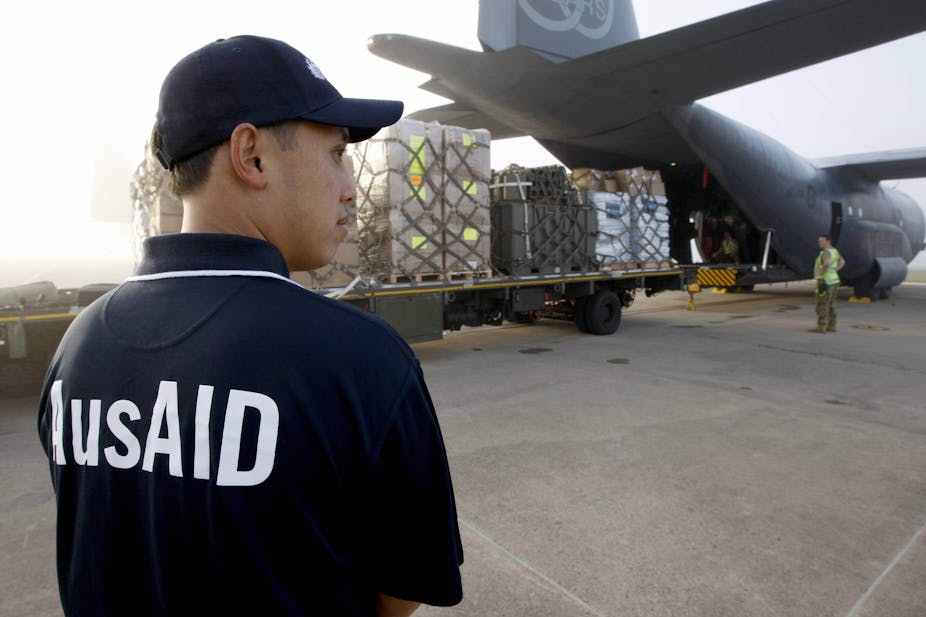In the foreword to the international development assistance component of this year’s Federal Budget, Foreign Minister Kevin Rudd gives cogent reasons for Australia’s position on foreign aid funding.
He reaffirms the government’s commitment to increase aid to 0.5% of our gross national income (GNI) by 2015, from 0.33% in 2010-11.
While the commitment to continue to increase Australia’s aid budget is commendable and welcome, a table at the back of the budget papers gives an important historical context to this commitment.
It allows us to answer the question: does our performance match our promises?
In the 2011-2012 financial year Australia’s ODA budget will be a total of $4.7 billion, 0.35% of GNI.
It has been climbing, rather fitfully but consistently for the past decade. However, it is instructive to put this into a longer historical context.

Although the growth in dollar terms is real (Figure 1) the commitment to reach 0.5% of GNI by 2015 is not much more than getting back to the position the country was in 40 years ago, when the ODA budget was 0.45% of GNI (Figure 2).
The Australian aid budget declined as a proportion of GNI from the early 1970s and reached a nadir in 2000-01.
The climb back commenced in 2001-02, but the level is still considerably lower than it was in 1971-72.

The substantial decline in aid funding as a percentage of GNI followed more or less immediately on the solemn agreement reached by donor nations, including Australia, and expressed in a UN General Assembly resolution in 1970 to increase aid to 0.7% of GNI:
“In recognition of the special importance of the role which can be fulfilled only by official development assistance, a major part of financial resource transfers to the developing countries should be provided in the form of official development assistance.
"Each economically advanced country will progressively increase its official development assistance to the developing countries and will exert its best efforts to reach a minimum net amount of 0.7 per cent of its gross national product at market prices by the middle of the decade.”
A commitment to get to 0.5% is no longer looking so heroic.
How does Australia fare in aid funding when compared to other developed nations?
At 0.33% of GNI, Australia is ranked 16th in 2009 among 23 OECD nations. Below Australia are New Zealand, Portugal, United States, Greece, Japan, Italy and South Korea. Portugal and Greece are relying on international support to stave off national bankruptcy, and the United States is dealing with massive financial problems.
At the top of this leagues table, and all well above the UN target of 0.7% of GNI, are Sweden, Norway, Luxembourg and Denmark.
In comparison with other OECD countries, we’re not looking too flash.
And yet the shadow treasurer, Joe Hockey, had to be pulled back into line with Opposition policy on development aid – a commitment to the 0.5% target – after saying in a post-budget interview: “If you want to really know what will rile Australian families, the foreign aid budget is increasing by $6 billion over the next four years.”
Kevin Rudd is right when he says that the global statistics on poverty “are unacceptable”, that reducing poverty “is also in our national security and national economic interest” and that “our aid is achieving results and saving lives”.
But it is also true that Australia, along with other developed countries, made a commitment 40 years ago to lift overseas development assistance to 0.7% of GNI.
Although we are heading in the right direction it will be a long time before we achieve what was promised in 1970.

